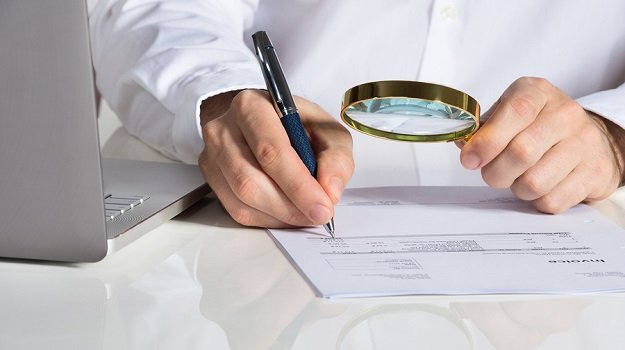Forensic Accounting Audit: The Ultimate Fraud Stoppers
Forensic accounting audits have become increasingly important in the business world as organizations strive to protect their financial integrity and ensure they are operating within the boundaries of the law. The rise in fraudulent activities has made it imperative for businesses to adopt a robust system to detect, prevent, and address financial discrepancies. Forensic accountants are specialized professionals who possess the skills to unravel the complex financial puzzles created by fraud, corruption, and embezzlement.
With the increasing sophistication of fraud schemes, it’s vital for businesses to conduct regular forensic accounting audits. These audits not only serve to uncover financial irregularities but also act as a deterrent, as they signal to potential wrongdoers that their fraudulent activities will not go unnoticed. In this blog, we will explore the importance of forensic accounting audits, how they can act as fraud stoppers, and why businesses should consider integrating them into their financial management strategies.
What Is Forensic Accounting Audit?
A forensic accounting audit is a detailed and investigative process used to uncover financial discrepancies and fraud. Unlike traditional audits that focus on providing a broad overview of financial statements, forensic accounting audits aim to uncover the truth behind suspected fraudulent activities or financial mismanagement. Forensic auditors use a variety of techniques, such as analyzing financial records, tracing the movement of money, and interviewing involved parties, to detect any signs of criminal activity or unethical behavior.
The primary goal of forensic accounting is to provide evidence that can be used in legal proceedings. For example, if fraud or embezzlement is suspected within an organization, the forensic audit report may be presented as evidence in court. This makes forensic accounting a vital part of any company’s risk management strategy.
Forensic accountants are trained to not only uncover discrepancies but also to trace the money trail. They analyze accounting records, financial statements, invoices, and contracts to ensure the financial integrity of an organization. This thorough approach helps businesses identify any unusual or unauthorized transactions, ensuring that fraudulent activities are caught before they spiral out of control.
Fraud Stoppers: How Forensic Accounting Audits Prevent Fraud
Fraud can occur in various forms, such as financial statement fraud, asset misappropriation, bribery, or corruption. No matter the form, the consequences of fraud can be devastating to a business. Financial losses, legal repercussions, and reputational damage are just a few of the negative impacts that fraud can have on an organization.
Forensic accounting audits act as effective fraud stoppers by providing a comprehensive review of an organization’s financial activities. The process includes the following key steps:
- Identification of Fraud Risks: The first step in any forensic audit is to assess the organization’s vulnerabilities. Forensic accountants work with the management team to identify areas where fraud is most likely to occur. They review internal controls, accounting systems, and operational procedures to uncover potential weaknesses.
- Detailed Investigation: Once fraud risks are identified, forensic accountants dive deep into the financial records. They look for any anomalies or discrepancies that might indicate fraudulent activity. Forensic accountants use advanced data analytics tools to identify unusual patterns, such as suspicious transactions, fictitious invoices, or altered financial statements.
- Tracing Financial Transactions: Forensic accountants follow the money trail by tracing transactions across various accounts, including bank statements, credit card transactions, and financial records. By identifying how money has moved within an organization, they can detect unauthorized withdrawals, misappropriation of assets, or other forms of financial misconduct.
- Interviewing Stakeholders: Forensic accountants also conduct interviews with employees, vendors, and other stakeholders who may have knowledge of the financial transactions being investigated. These interviews help gather additional evidence and clarify any discrepancies.
- Reporting and Legal Support: After the investigation, forensic accountants prepare detailed reports documenting their findings. These reports are crucial in legal proceedings, where they can serve as evidence to support allegations of fraud. Forensic accountants may also provide expert testimony in court to explain their findings and the methods used in the investigation.
By employing forensic accounting audits as part of their internal control systems, organizations can significantly reduce the risk of fraud. Not only do these audits help detect fraudulent activities, but they also serve as a deterrent, making employees and potential wrongdoers aware that any suspicious activities will be identified and addressed.
The Role of Forensic Accountants in Combating Fraud
Forensic accountants play a crucial role in the fight against financial fraud. These professionals are trained to spot even the smallest irregularities in financial records that may indicate fraudulent activity. Their expertise is invaluable in identifying and investigating financial fraud in its early stages.
Forensic accountants use specialized techniques and tools to detect fraud, including:
- Data Analytics: Forensic accountants use advanced software to analyze large volumes of financial data. This helps them identify unusual transactions, such as duplicate payments, excessive spending, or inconsistencies in accounting records. By using data analytics, forensic accountants can detect fraud more efficiently and effectively.
- Forensic Investigation Skills: Forensic accountants have investigative skills that go beyond traditional accounting methods. They are trained to think like detectives, piecing together financial evidence and identifying the motives behind fraudulent activities. They can uncover hidden assets, money laundering schemes, and complex fraud operations that may otherwise go unnoticed.
- Fraud Detection Tools: Forensic accountants use specialized fraud detection tools to analyze transactions and financial records. These tools include forensic data mining software, transaction monitoring systems, and audit trail analysis. By using these tools, forensic accountants can identify suspicious patterns and uncover fraud that may not be immediately apparent.
- Legal Expertise: Forensic accountants are also familiar with legal processes and regulations. They can provide legal support by ensuring that all evidence collected during the investigation is admissible in court. They can also serve as expert witnesses, providing testimony on the methods used in the forensic audit and explaining their findings to the court.
Through their combination of investigative and financial expertise, forensic accountants are able to uncover fraudulent activities, prevent future fraud, and provide valuable evidence for legal proceedings.
Why Every Business Needs Forensic Accounting Audits
Fraud is a pervasive issue that affects businesses of all sizes and industries. It is essential for every organization to have a robust system in place to detect and prevent fraud. Forensic accounting audits offer several key benefits that make them an essential part of any business strategy.
- Early Detection of Fraud: Forensic accounting audits help businesses identify fraud at an early stage, minimizing potential losses. By regularly conducting forensic audits, companies can quickly uncover any discrepancies and address them before they escalate.
- Enhanced Internal Controls: Forensic audits help businesses evaluate their internal controls and identify any weaknesses that may leave them vulnerable to fraud. By addressing these weaknesses, businesses can strengthen their financial systems and reduce the risk of future fraudulent activities.
- Legal Protection: Forensic accounting audits provide legal protection by ensuring that businesses comply with financial regulations and laws. In the event of a fraud investigation or legal dispute, forensic accounting reports can serve as key evidence in court, helping businesses defend themselves against fraudulent allegations.
- Deterrent for Fraud: The presence of a forensic audit system acts as a deterrent for employees and vendors who may be tempted to commit fraud. Knowing that their actions are being monitored significantly reduces the likelihood of fraudulent activities taking place.
- Improved Financial Integrity: Forensic accounting audits help businesses maintain financial integrity by ensuring that all financial records are accurate and transparent. This builds trust with investors, customers, and stakeholders, contributing to the overall success and growth of the business.
How Mortgage Audits Online Can Help
If your business is looking to implement forensic accounting audits or needs assistance with an ongoing investigation, Mortgage Audits Online is here to help. Our team of expert forensic accountants is trained to uncover fraud, analyze financial records, and provide detailed reports that can be used in legal proceedings.
We understand the complexities of financial fraud and offer customized forensic accounting audits that cater to your specific needs. Whether you’re dealing with suspected embezzlement, financial mismanagement, or any other form of fraud, we have the expertise to investigate and provide you with the evidence needed to protect your business.
At Mortgage Audits Online, we are committed to helping businesses reduce the risk of fraud and ensure their financial integrity. Our forensic accounting services are designed to give you peace of mind, knowing that your finances are being thoroughly examined and protected.
Conclusion
Forensic accounting audits are a critical component of any business’s fraud prevention strategy. By employing forensic accountants to investigate financial records and uncover fraudulent activities, businesses can safeguard their assets, maintain legal compliance, and prevent future fraud. These audits not only detect fraud but also serve as a deterrent, making it clear that fraudulent activities will not be tolerated.
If you’re looking to protect your business from fraud and ensure your financial systems are secure, don’t wait until it’s too late. Contact us today at (877)-399-2995 or visit Mortgage Audits Online to learn more about how our forensic accounting services can help you stop fraud in its tracks. We are here to provide you with the expertise and support you need to safeguard your business’s financial future.







